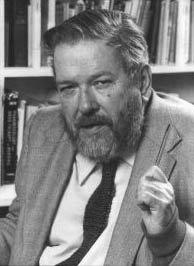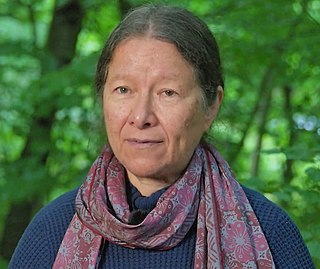Michael D. Bess (born 1955) is a specialist in twentieth- and twenty-first century Europe, with a particular interest in the interactions between social and cultural processes and technological change.
Michael D. Bess (born 1955) is a specialist in twentieth- and twenty-first century Europe, with a particular interest in the interactions between social and cultural processes and technological change.
He earned his PhD in history from the University of California, Berkeley in 1989. [1]
He is the author the books Our Grandchildren Redesigned: Life in the Bioengineered Society of the Near Future (2015); Choices Under Fire: Moral Dimensions of World War II (2006); The Light-Green Society: Ecology and Technological Modernity in France, 1960-2000 (2003), which won the George Perkins Marsh prize (2004) of the American Society for Environmental History; and Realism, Utopia, and the Mushroom Cloud: Four Activist Intellectuals and Their Strategies for Peace, 1945–1989 (1993).
His fifth book is Planet in Peril: Humanity's Four Greatest Challenges and How We Can Overcome Them (2022). This study focuses on the existential risks posed by climate change, nuclear weapons, pandemics (natural or bioengineered), and artificial intelligence – surveying the solutions that have been tried, and why they have fallen short thus far. Bess describes a pathway for gradually modifying the United Nations over the coming century so that it becomes more effective at coordinating global solutions. The book explores how to get past ideological polarization and global political fragmentation, drawing lessons from the experience of the environmental movement and of the European unification movement.
Bess is Chancellor's Professor of History, as well as Professor of the Communication of Science and Technology, and Professor of European Studies, at Vanderbilt University, where he has been teaching since 1989. He is a specialist in twentieth- and twenty-first century Europe, with a particular interest in the interactions between social and cultural processes and technological change. He offers undergraduate courses on the history of environmentalism; human flourishing; the societal and moral implications of human bioenhancement; World War II; science and technology studies; the nature of human agency in history; as well as general survey courses on Europe Since 1900, and Western Civilization Since 1700. His graduate courses include seminars on World War II, Leonardo da Vinci, and a semester-long workshop to train graduate students for teaching history at the college level.

Technological utopianism is any ideology based on the premise that advances in science and technology could and should bring about a utopia, or at least help to fulfill one or another utopian ideal.

George Parkin Grant was a Canadian philosopher, university professor and social critic. He is known for his Canadian nationalism, a political conservatism that affirms the values of community, equality and justice and his critical, philosophical analysis of the social and political effects of limitless technological progress. As a practising Christian, Grant conceived of time as the moving image of an eternal order illuminated by love.

Environmental history is the study of human interaction with the natural world over time, emphasising the active role nature plays in influencing human affairs and vice versa.

Progress is movement towards a refined, improved, or otherwise desired state. It is central to the philosophy of progressivism, which interprets progress as the set of advancements in technology, science, and social organization efficiency – the latter being generally achieved through direct societal action, as in social enterprise or through activism, but being also attainable through natural sociocultural evolution – that progressivism holds all human societies should strive towards.

Langdon Brown Gilkey was an American Protestant ecumenical theologian.
Human enhancement is the natural, artificial, or technological alteration of the human body in order to enhance physical or mental capabilities.
Robert Buford Pippin is an American philosopher. He is the Evelyn Stefansson Nef Distinguished Service Professor in the John U. Nef Committee on Social Thought, the Department of Philosophy, and the college at the University of Chicago.

The Vanderbilt Divinity School and Graduate Department of Religion is an interdenominational divinity school at Vanderbilt University, a major research university located in Nashville, Tennessee. It is one of only six university-based schools of religion in the United States without a denominational affiliation that service primarily mainline Protestantism.
Peter W. Zandstra, is a Canadian scientist who is the Director of the Michael Smith Laboratories at the University of British Columbia.
Troy Smith Duster is an American sociologist with research interests in the sociology of science, public policy, race and ethnicity and deviance. He is a Chancellor’s Professor of Sociology at University of California, Berkeley, and professor of sociology and director of the Institute for the History of the Production of Knowledge at New York University. Duster is on the faculty advisor boards of the Berkeley Center for Social Medicine and the Berkeley Center for Right-Wing Studies.
The Tanner Lectures on Human Values is a multi-university lecture series in the humanities, founded in 1978, at Clare Hall, Cambridge University, by the American scholar Obert Clark Tanner. In founding the lecture, he defined their purpose as follows:
I hope these lectures will contribute to the intellectual and moral life of mankind. I see them simply as a search for a better understanding of human behavior and human values. This understanding may be pursued for its own intrinsic worth, but it may also eventually have practical consequences for the quality of personal and social life.
The following outline is provided as an overview of and topical guide to ethics.
David Garland is Arthur T. Vanderbilt Professor of Law and professor of sociology at New York University, and an honorary professor in Criminology at Edinburgh Law School. He is well known for his historical and sociological studies of penal institutions, for his work on the welfare state, and for his contributions to criminology, social theory, and the study of social control.

A dystopia, also called a cacotopia or anti-utopia, is a community or society that is extremely bad or frightening. It is often treated as an antonym of utopia, a term that was coined by Sir Thomas More and figures as the title of his best known work, published in 1516, which created a blueprint for an ideal society with minimal crime, violence, and poverty. The relationship between utopia and dystopia is in actuality, not one simple opposition, as many utopian elements and components are found in dystopias as well, and vice versa.
The Soviet Peace Committee was a state-sponsored organization responsible for coordinating peace movements active in the Soviet Union. It was founded in 1949 and existed until the fall of the Soviet Union in 1991.
Kenneth Morrison Roemer, an Emeritus Professor at the University of Texas at Arlington, an Emeritus Fellow, UT System Academy of Distinguished Teachers, and a former Piper Professor of 2011, Distinguished Scholar Professor, and Distinguished Teaching Professor at the University of Texas at Arlington. He is the author or editor of four books on utopian literature, including The Obsolete Necessity (1976), nominated for a Pulitzer, and three books on American Indian literatures, including the co-edited Cambridge Companion to Native American Literature (2005). His collection of personal essays about Japan, Michibata de Dietta Nippon (2002) (A Sidewalker’s Japan), was a finalist for the Koizumi Yakumo Cultural Prize. He is the project director of a digital archive of tables of contents of American literature anthologies Covers, Titles, and Tables: The Formations of American Literary Canons.
Joyce E. Chaplin is an American historian and academic known for her writing and research on early American history, environmental history, and intellectual history. She is the James Duncan Phillips Professor of Early American History at Harvard University. She was a Guggenheim Fellow and American Academy of Arts and Sciences Fellow of 2019. In 2020 she was elected to the American Philosophical Society. She is on the Editorial Board of the Journal of the History of Ideas.
Dean Stanley Tarbell was an American chemist. Tarbell was notable for his research of detection methods of chemical warfare agents during World War II, his discovery of new types of organic chemicals, and his synthesis of anti-malarial drugs. Tarbell was chairman of the chemistry department at University of Rochester, Charles Fredrick Houghton professor of Chemistry a member of the National Academy of Sciences, a member of the American Academy of Arts and Sciences, a recipient of Dexter Award of the Division of the History of Chemistry of the American Chemical Society a recipient of Charles Holmes Herty Medal, the American Chemical Society, a distinguished professor at Vanderbilt University. The National Academy of Sciences said that Tarbell "had a distinguished career in research and teaching in organic chemistry".

Anna Lowenhaupt Tsing is a Chinese American anthropologist. She is a professor in the Anthropology Department at the University of California, Santa Cruz. In 2018, she was awarded the Huxley Memorial Medal of the Royal Anthropological Institute.
Moses Ebe Ochonu is a Nigerian academic, historian, author and professor of African History at Vanderbilt University, Nashville, Tennessee. He has been the Cornelius Vanderbilt Chair in History since 2017.